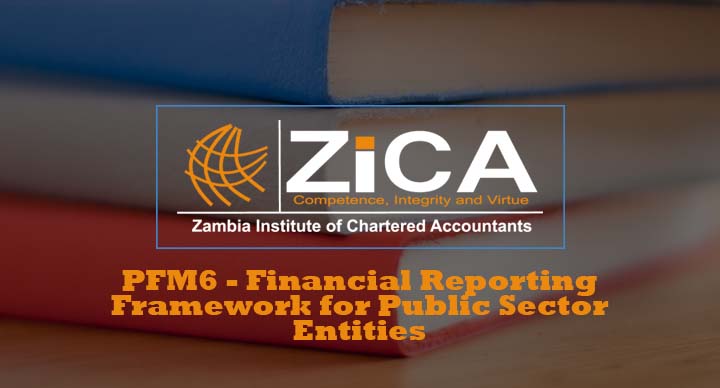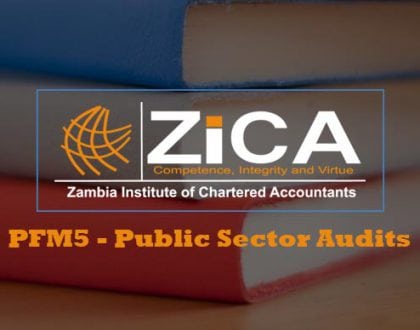PFM6 – Financial Reporting Framework for Public Sector Entities
No access plans exist.

Course Features
Course Details
PFM 6: FINANCIAL REPORTING FRAMEWORK FOR PUBLIC SECTOR ENTITIES
4.6.1. LEARNING OUTCOMES: On completion of this module, students will be able to:- Outline the objectives of Financial Reporting for Public Sector entities;
- Explain the Conceptual Framework underpinning the Financial Reporting for Public Sector entities;
- Explain the Role and Significance of International Public Sector Accounting Standards (IPSAS);
- Prepare Financial Statements in Public Sector organizations in line with IPSAS; and
- Design and implement performance measures in Public Sector organizations.
4.6.2. MODULE UNITS AND WEIGHTINGS
| Unit | Title | Weight % |
| 1 | Financial Reporting Framework for Public Sector Entities | 15 |
| 2 | International Public Sector Accounting Standards (IPSAS) | 30 |
| 3 | Preparation of Financial Statements in Public Sector Entities | 40 |
| 4 | Financial Performance Measurement in Public Entities | 15 |
4.6.3. COURSE CONTENT
UNIT 1: FINANCIAL REPORTING FRAMEWORK FOR PUBLIC SECTOR ENTITIESUnit Topics:- 1.1 Objectives of Financial Reporting in the Public Sector
- 1.2 Users of Financial Reports in the Public Sector
- 1.3 The IPSASB Conceptual Framework for General Purpose Financial Reporting by Public Sector entities
- 1.4 Linkage between IFRS and IPSAS.
- 2.1 Rationale for Public Sector Accounting Standards
- 2.2 Recognition, measurement and disclosure requirements of IPSAS.
- 3.1 Elements of Financial Statements
- 3.1.1 Statement of Financial Position
- 3.1.2 Statement of Financial Performance
- 3.1.3 Statement of changes in Net Assets/Equity
- 3.1.4 Cash flow Statement
- 3.1.5 Notes to the Accounts
- 3.2 Prepare financial statements based on the IPSASs:
- 3.2.1 Cash Basis Reports
- 3.2.2 Accrual Based Reports (As per Accrual Based Standards)
- 4.1 The Regulatory Framework for measuring performance in the Public Sector
- 4.2 Analysis of quantitative and qualitative approaches to performance measurement
- 4.3 Analytical methods of performance management:
- 4.3.1 Cash flow & Working Capital Management
- 4.3.2 Forecasting and Budgeting
- 4.3.3 Ratio Analysis
- 4.4 Application of Risk Management in resource allocation
- 4.5 Change management strategies in transition to accruals based accounting
| Structure of the Paper | Marks |
| Section A: 1 Compulsory question of 40 marks | 40 |
| Section B: Any 3 out of 4 questions, 20 marks each | 60 |
| TOTAL | 100 |
This course does not have any sections.





